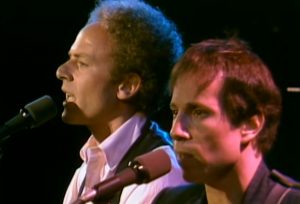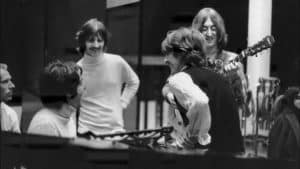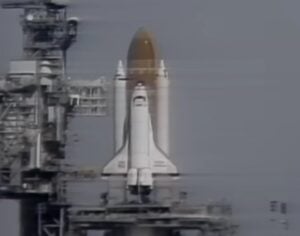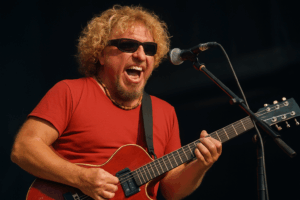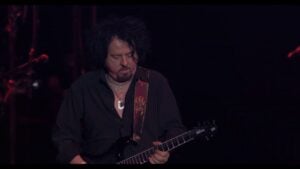Paul Stanley Issues Public Apology to Bruce Kulick for Oversight at KISS Kruise
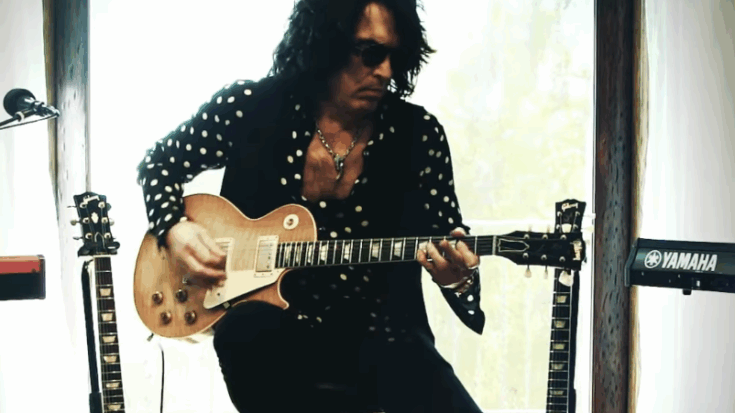
via Ernie Ball / YouTube
Paul Stanley’s latest appearance at KISS Kruise Vegas 2025 came with more than the usual stories, solos, and fan questions. During a Q&A session, he stopped the flow of the evening to address something that had been bothering him since the previous night: he had failed to properly acknowledge former KISS guitarist Bruce Kulick when Bruce joined them onstage. The apology, later shared via The Rock Experience with Mike Brunn, quickly made the rounds in the KISS fan community.
Stanley explained that the previous night had been a blur of adrenaline, excitement, and surprises. When Kulick walked out, it caught him off guard, and in the rush of the moment he moved on without giving Bruce the credit he felt was due. At the Q&A he owned that mistake directly, saying he had forgotten to “give him his due” and calling Bruce not just part of the KISS family, but an important member of the band itself.
For many fans, the apology touched a nerve because it acknowledged an era of KISS that often sits just outside the spotlight dominated by the original makeup years. By taking time, in front of paying fans on the Kruise, to publicly correct himself, Stanley pulled Kulick’s contributions back into focus. It turned what could have been a small, awkward oversight into a moment of respect for a guitarist who helped carry KISS through a very different chapter of its history.
View this post on Instagram
The Moment on the Kruise
The incident itself happened during the KISS Kruise: Landlocked-style Vegas run in November 2025, a weekend already loaded with emotion because it was the band’s first big fan event after the death of founding guitarist Ace Frehley. The shows mixed tributes, deep cuts, and guest appearances, and Bruce Kulick’s presence onstage was one of those surprises that longtime fans live for.
When Bruce joined the band during the performance, cameras caught Gene Simmons putting an arm around him, while Stanley pushed ahead to the next part of the show. At the time, some fans noticed the lack of verbal acknowledgment and started talking about it online. From the outside, it looked more like a missed beat than malice, but in a band with as much history as KISS, small moments can carry a lot of weight.
Stanley clearly felt the same way. At the Q&A he spoke directly about the oversight, saying the night had been a “big adrenaline rush” and that he hadn’t even remembered Bruce was coming out until he saw him. He then apologized for not giving Kulick proper credit onstage and stressed that Bruce was both family and an important part of KISS. It was short, clear, and free of spin—exactly the kind of correction fans often hope to see but rarely get.
View this post on Instagram
Why Bruce Kulick Matters to KISS
Bruce Kulick’s time in KISS ran from 1984 to 1996, a stretch that covered the band’s fully unmasked, hard-rock-and-’80s-gloss phase. He came in after Mark St. John’s brief tenure and became the steady touring and recording guitarist during a period when KISS was reshaping itself for a new decade. Unlike the classic “Spaceman” era, Kulick never wore makeup onstage, but he was there for the long haul in the years when KISS leaned into slicker production and big choruses.
On record, Kulick’s guitar work is all over key albums from that era. He played on Asylum (1985), Crazy Nights (1987), Hot in the Shade (1989), Revenge (1992), and Carnival of Souls: The Final Sessions (recorded in the mid-’90s and released later). He also contributed to live releases like Alive III and MTV Unplugged, which captured the band at important turning points—one in the middle of their non-makeup phase, and one right before the reunion with the original lineup.
Commercially, these years were far from minor. The albums Kulick played on earned multiple Gold and Platinum certifications, and songs from that era still appear on compilations and setlists, especially when the band dips into ’80s material. His playing combined clean technique with tones that fit both the radio-friendly side of KISS and their heavier moments, particularly on Revenge, which many fans and critics point to as a late-period standout. For a whole generation of listeners who discovered KISS after the makeup came off, Bruce Kulick was their lead guitarist.
View this post on Instagram
Life After KISS and the Weight of an Apology
When the original members of KISS reunited and brought the makeup back in the mid-’90s, Kulick stepped aside, officially leaving the band in 1996. He didn’t disappear, though. He formed Union with former Mötley Crüe singer John Corabi, worked with the Eric Singer Project (ESP), and enjoyed a long run as guitarist for Grand Funk Railroad starting in 2000. Along the way he released solo albums like Audiodog, Transformer, and BK3, quietly building a catalog that stands on its own outside of KISS.
Even while moving forward, Kulick stayed connected to the KISS universe. He has appeared on various archival and special releases, joined themed events like earlier KISS Kruise performances, and regularly shares deep-dive stories and isolated guitar parts from classic tracks with fans. For many people, that openness has only increased their appreciation for the work he did during his twelve-year run with the band.
That’s why Paul Stanley’s apology hit differently than a routine onstage shout-out. It wasn’t just about a missed name in Vegas; it was about publicly recognizing a guitarist whose era can sometimes feel overshadowed by the more mythologized ’70s lineup. By admitting he’d fallen short and calling attention back to Bruce, Stanley helped shine a light on a chapter of KISS history that still means a lot to the people who lived through it—and to the guitarist who helped hold that version of KISS together night after night.
View this post on Instagram





